Peugeot 408 VS Renault Clio – Specs, Efficiency & Price Comparison
Which model is the better choice – the Peugeot 408 or the Renault Clio? We compare performance (225 HP vs 143 HP), boot capacity (536 L vs 391 L), efficiency (15.10 kWh1.40 L vs 4.30 L), and of course, the price (34300 £ vs 16600 £).
Find out now which car fits your needs better!
The Peugeot 408 (SUV) is powered by a Plugin Hybrid, Electric or Petrol MHEV engine and comes with a Automatic transmission. In comparison, the Renault Clio (Hatchback) features a Full Hybrid, Petrol or LPG engine and a Automatic or Manuel gearbox.
When it comes to boot capacity, the Peugeot 408 offers 536 L, while the Renault Clio provides 391 L – depending on what matters most to you. If you’re looking for more power, you’ll need to decide whether the 225 HP of the Peugeot 408 or the 143 HP of the Renault Clio suits your needs better.
There are also differences in efficiency: 15.10 kWh1.40 L vs 4.30 L. In terms of price, the Peugeot 408 starts at 34300 £, while the Renault Clio is available from 16600 £.
Compare all the key specs now and find out which model fits your lifestyle best!
Peugeot 408
The Peugeot 408 captivates with its sleek and dynamic design, setting it apart in the competitive crossover market. Its interior offers a perfect blend of comfort and cutting-edge technology, creating an enjoyable driving experience. The model's efficient performance and modern features make it a compelling choice for those seeking both style and functionality in their vehicles.
details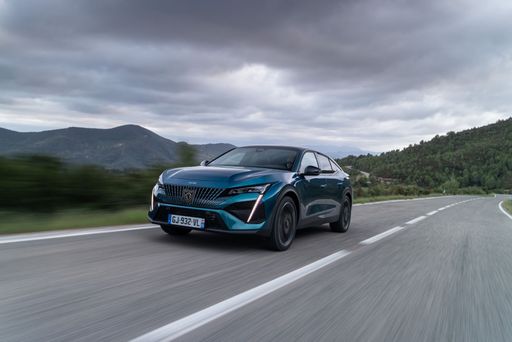 @ media.stellantis.com
@ media.stellantis.com
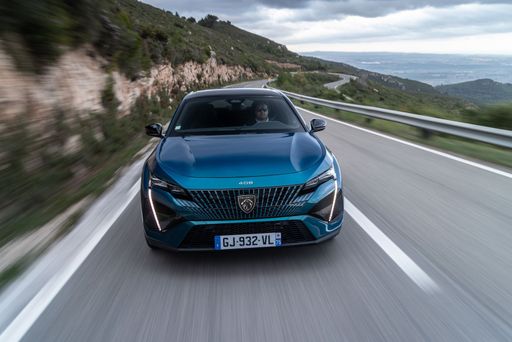 @ media.stellantis.com
@ media.stellantis.com
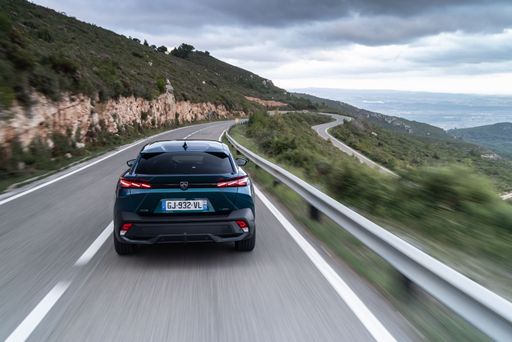 @ media.stellantis.com
@ media.stellantis.com
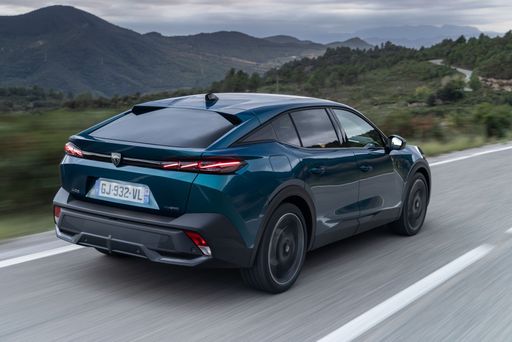 @ media.stellantis.com
@ media.stellantis.com
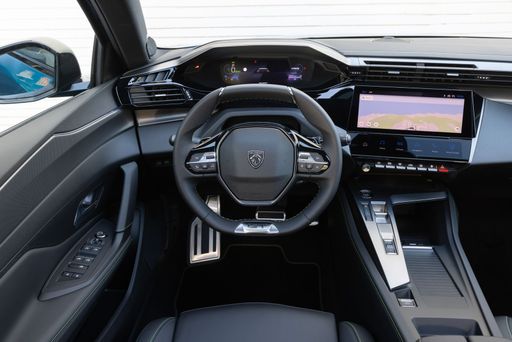 @ media.stellantis.com
@ media.stellantis.com
Renault Clio
The Renault Clio continues to impress with its sleek design and agile handling, making it a standout choice in the compact car segment. Inside, it offers a surprisingly spacious and comfortable cabin, crafted with high-quality materials that enhance the driving experience. Its fuel efficiency and reliable performance make it an attractive option for both city commuting and longer journeys.
details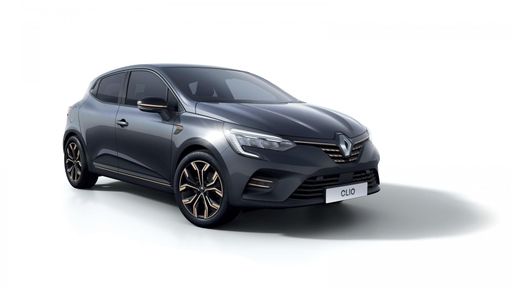 @ renault-presse.de
@ renault-presse.de
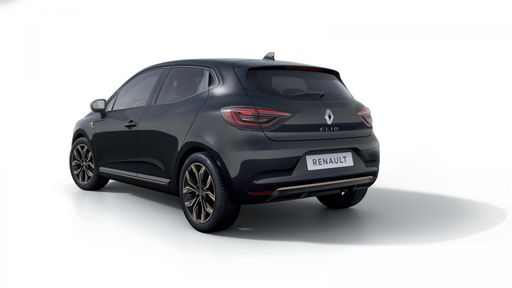 @ renault-presse.de
@ renault-presse.de
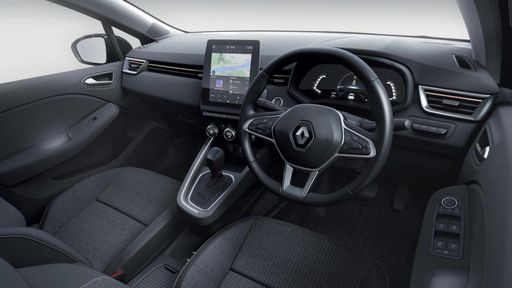 @ renault-presse.de
@ renault-presse.de

|

|
|
|
|
Costs and Consumption |
|
|---|---|
|
Price
34300 - 44400 £
|
Price
16600 - 23000 £
|
|
Consumption L/100km
1.4 - 5.1 L
|
Consumption L/100km
4.3 - 7 L
|
|
Consumption kWh/100km
15.10 kWh
|
Consumption kWh/100km
-
|
|
Electric Range
63 - 453 km
|
Electric Range
-
|
|
Battery Capacity
11.3 - 58.2 kWh
|
Battery Capacity
0.60 kWh
|
|
co2
0 - 114 g/km
|
co2
97 - 122 g/km
|
|
Fuel tank capacity
40 - 52 L
|
Fuel tank capacity
32 - 42 L
|
Dimensions and Body |
|
|---|---|
|
Body Type
SUV
|
Body Type
Hatchback
|
|
Seats
5
|
Seats
5
|
|
Doors
5
|
Doors
5
|
|
Curb weight
1544 - 1879 kg
|
Curb weight
1124 - 1331 kg
|
|
Trunk capacity
471 - 536 L
|
Trunk capacity
301 - 391 L
|
|
Length
4687 mm
|
Length
4053 mm
|
|
Width
1848 mm
|
Width
1798 mm
|
|
Height
1478 mm
|
Height
1440 mm
|
|
Payload
371 - 456 kg
|
Payload
398 - 406 kg
|
Engine and Performance |
|
|---|---|
|
Engine Type
Plugin Hybrid, Electric, Petrol MHEV
|
Engine Type
Full Hybrid, Petrol, LPG
|
|
Transmission
Automatic
|
Transmission
Automatic, Manuel
|
|
Transmission Detail
Automatikgetriebe, Automat. Schaltgetriebe (Doppelkupplung)
|
Transmission Detail
Automatikgetriebe, Schaltgetriebe
|
|
Drive Type
Front-Wheel Drive
|
Drive Type
Front-Wheel Drive
|
|
Power HP
145 - 225 HP
|
Power HP
67 - 143 HP
|
|
Acceleration 0-100km/h
7.2 - 9.4 s
|
Acceleration 0-100km/h
9.3 - 17.1 s
|
|
Max Speed
160 - 233 km/h
|
Max Speed
160 - 174 km/h
|
|
Torque
230 - 360 Nm
|
Torque
95 - 205 Nm
|
|
Number of Cylinders
4
|
Number of Cylinders
3 - 4
|
|
Power kW
107 - 165 kW
|
Power kW
49 - 105 kW
|
|
Engine capacity
1199 - 1598 cm3
|
Engine capacity
999 - 1598 cm3
|
General |
|
|---|---|
|
Model Year
2024 - 2025
|
Model Year
2023 - 2024
|
|
CO2 Efficiency Class
B, A, C
|
CO2 Efficiency Class
C, D
|
|
Brand
Peugeot
|
Brand
Renault
|
Peugeot 408
The New Lion on the Block: The Peugeot 408
As Peugeot continues to innovate within the SUV segment, the latest iteration of the Peugeot 408 sets new standards in technology, efficiency, and design. With its cutting-edge engineering and innovative features, the Peugeot 408 is more than just a stylish SUV—it's a marvel of modern automotive technology. This article dives into the technical details and innovations that make the Peugeot 408 a highly compelling choice for consumers in the market for a new vehicle.
A Glimpse into the Engine Bay: Performance and Efficiency
The Peugeot 408 comes with a diverse range of powertrains that blend performance and fuel efficiency. Featuring a selection of petrol mild-hybrid, petrol, and plug-in hybrid options, the 408 caters to a variety of driving preferences. The engines have a power output ranging from 131 to 225 PS, ensuring that there's a version suited to both city commutes and highway cruising.
Fuel economy is a significant focus, with consumption figures spanning from an impressive 1.5 L/100km for the plug-in hybrid models to a moderate 6.1 L/100km for the traditional petrol engines. Additionally, the plug-in hybrid versions boast an electric range of up to 55 kilometres, ideal for reducing emissions during shorter journeys.
Ultimate Comfort and Technology in the Cockpit
Peugeot excels in creating interiors that provide both comfort and cutting-edge technology. The 408 doesn't disappoint in this regard. It offers a spacious cabin, accommodating up to five passengers, with high-quality materials and ergonomic designs that enhance the driving experience.
The infotainment system in the Peugeot 408 is state-of-the-art, featuring a responsive touchscreen interface, premium sound options, and seamless connectivity with smartphones. Advanced driver-assistance systems such as adaptive cruise control, lane-keeping assist, and automated emergency braking ensure that journeys are not only comfortable but also safe.
Design Meets Function: Exterior and Practicality
In the realm of exterior design, Peugeot has delivered a striking silhouette with aerodynamic lines and a robust SUV stance. Measuring 4687 mm in length, 1848 mm in width, and 1478 mm in height, the 408 boasts a dynamic presence on the road without compromising on practicality.
Practicality is further enhanced by a generous boot space that ranges from 471 to 536 litres, depending on the model, making it perfect for family trips or weekend getaways. A high payload capacity and thoughtfully designed storage solutions ensure that the Peugeot 408 remains versatile, able to adapt to various lifestyle needs.
Environmental Responsibility and Sustainable Driving
With a keen eye on sustainability, the Peugeot 408 offers an impressive CO2 efficiency rating. The plug-in hybrid versions, in particular, present a substantial reduction in carbon emissions, operating at as low as 33 g/km. This makes the 408 a viable option for environmentally conscious consumers seeking to minimise their carbon footprint.
The automaker's commitment to sustainability does not end at emissions. The materials used in the 408's construction are carefully selected to promote durability and recyclability, ensuring that the vehicle maintains a lower impact on the environment throughout its lifecycle.
Conclusion: The Perfect Blend of Innovation and Tradition
The Peugeot 408 is a remarkable illustration of Peugeot's ability to blend traditional automotive values with the latest technological advancements. Its innovative powertrains, luxurious interiors, and forward-thinking design make it a formidable contender in the competitive SUV market. Whether you prioritise fuel economy, driving performance, or cutting-edge technology, the Peugeot 408 is poised to meet and exceed expectations. As Peugeot advances into the future, the 408 leads the charge as a testament to the brand's relentless pursuit of excellence.
Renault Clio
Introduction to the Renault Clio
The Renault Clio, a popular choice among compact cars, has continually advanced its design and technology to maintain a strong position in the automotive market. With enhancements in engineering, efficiency, and aesthetic appeal, the Clio remains a top contender in the hatchback category.
Advanced Hybrid Technology
The Renault Clio's hybrid technology is one of its standout features. The E-Tech Hybrid system optimises both performance and efficiency, offering a seamless transition between electric and fuel-powered driving. This setup results in an impressive fuel consumption rate of 4.3 L/100km, making it an attractive option for eco-conscious drivers.
Efficient Engine Options
Renault offers a variety of engine choices for the Clio, accommodating different driving styles and preferences. From the economical SCe 65 manual variant to the powerful TCe 100 LPG gas version, each option is engineered to balance performance with fuel efficiency. With outputs ranging from 67 to 143 PS, drivers can enjoy a tailored driving experience.
Design and Comfort
The Renault Clio stands out with its sleek and modern design, characterized by its hatchback body style. The interior boasts an ergonomic layout with seating for five, ensuring passenger comfort and convenience. With a boot capacity of 301 to 391 litres, the Clio also offers practical storage solutions for everyday use.
Safety and Innovation
Safety is a key priority for Renault, and the Clio reflects this commitment with its suite of innovative safety features. Advanced driver-assistance systems are integrated throughout, enhancing both safety and usability. The Clio encompasses features like lane departure warning, automatic emergency braking, and adaptive cruise control.
Cost Efficiency and Environmental Impact
The Renault Clio not only offers affordability with pricing ranging from €18,450 to €26,800, but also promises low running costs. With CO2 emissions between 97 and 130 g/km, the Clio fits well within the C and D efficiency classes. This makes it a cost-effective and environmentally friendly choice for modern drivers.
Conclusion
Renault Clio remains a dynamic, dependable and economical option in the compact car segment. With its innovative technologies, diverse engine options, and commitment to safety and design, the Clio continues to impress and adapt to the evolving demands of the automotive world.
The prices and data displayed are estimates based on German list prices and may vary by country. This information is not legally binding.
